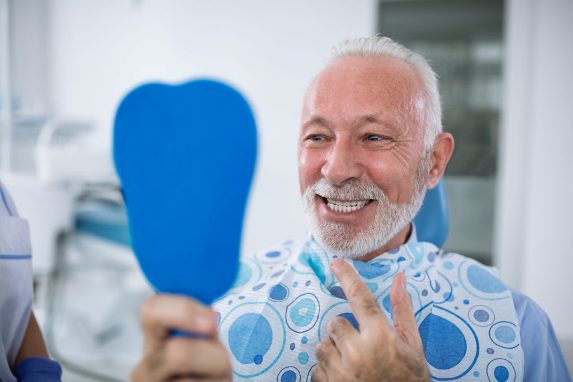
Do you know someone who’s afraid of going to the dentist? Unfortunately, it’s not uncommon to find otherwise rational people who are unnerved by the thought of spending time in a dentist’s chair. But those patients are in luck. Vermont has professionals trained in the art of sedation dentistry. While hospitals can perform procedures during which patients are completely unconscious, some dentists perform “conscious sedation” in the comfort of their office. Since patients have been known to sleep through their procedures, sometimes to the extent of snoring, sedation dentistry is also known as sleep dentistry.
Dr. John Liscio of Liscio Dental in Colchester provides sedation dentistry to patients from all walks of life. Liscio said there are varying degrees of sedation ranging from pills to an IV drip. Each form of sedation puts the patient at ease, but some are amnesiacs which means patients not only are unaware of what is going but, frequently don’t remember anything afterwards. Patients undergoing sedation dentistry aren’t allowed to drive or operate machinery for 24 hours after the procedure. While under sedation, they are monitored constantly for their pulse, heart rate and oxygen saturation levels, with blood pressure checks every five minutes. Liscio explained that it is safest to sedate a highly phobic patient because “a high state of anxiety can predispose them to medical emergencies.”
Liscio said many of his patients are significantly frightened by the thought of any kind of dental procedure. “They’ve had a bad medical or dental experience,” he said, “so someone with a white coat is anxiety producing.” Other patients undergoing sedation dentistry may do so because they need minor surgery and want to combine several procedures in one.
Liscio said the first step is to determine why a patient wants to be sedated and then decide the degree of the sedation. Some patients may be comfortable with a single dosage of an anxiolytic or minor tranquilizer. Others may want to be completely unaware of their surroundings.
Patients who are merely anxious will undergo anxiolysis, a pharmacologically induced state of consciousness. They will remain awake and able to interact with their physician.
Those patients wishing to be completely sedated can receive an IV drip, which is similar to the one used for colonoscopies. Liscio described such patients as being “in a dream state” in which they sleep through the procedure. “When they wake up they usually do not remember anything,” he said. “Patients are always amazed because it seems like the procedure barely started and it is already over.”
Liscio noted that no two patients are alike and the same medication in the same dosage may produce different effects. Severely phobic patients will be given anti-anxiety medication the night before a procedure so they can sleep. In the morning, they take additional pills to be comfortable enough for the IV to be administered. Liscio believes he is the only general dentist in the state to use an IV drip. The drip allows the procedure to be completed in a shorter time frame than just using pills since it takes some time for medication to take effect. The downside is that it is more expensive, although sedation dentistry is covered by some dental plans.
Liscio said sedation dentists need to undergo additional training before being licensed by the State of Vermont. They have to be certified for advanced cardiac life support and must be observed performing sedations in a supervised facility. The Vermont Board of Dental Examiners requires a dentist to complete a 60-hour IV sedation course, administer 20 clinical patient cases, and obtain a permit before providing conscious sedation to dental patients. There are seven licensed sedation dentists in the state, but most work in the field of pediatric dentistry.
Although Liscio provides “traditional” dentistry, as well, he considers the sedation part of his practice to be exceptionally rewarding. Often, patients who require sedation are those who have avoided seeing a dentist for over a decade and have developed serious dental issues. By finally making the decision to have their teeth cared for, they can lessen their anxiety about dental disease, and undergo cleanings and other procedures to improve their appearance. “They no longer have to live with the fear of walking into a dental office,” said Liscio, “nor do they have to live with the fear of being judged by others.”
Many are so comforted by their first experience that they are able to come in for regular cleanings and checkups, often without the need for sedation. Liscio has a number of success stories but the best is the mother who told him that now she can be honest with her children when she tells them that they have to go to the dentist because “now Mommy goes to the dentist, too.”
This article was contributed by Phyl Newbeck.
 Related Articles & Free Subscription
Related Articles & Free Subscription
Does Medicare Cover Dental Care?
Older Americans Who Neglect Oral Care Put Overall Health At Risk



Comment here